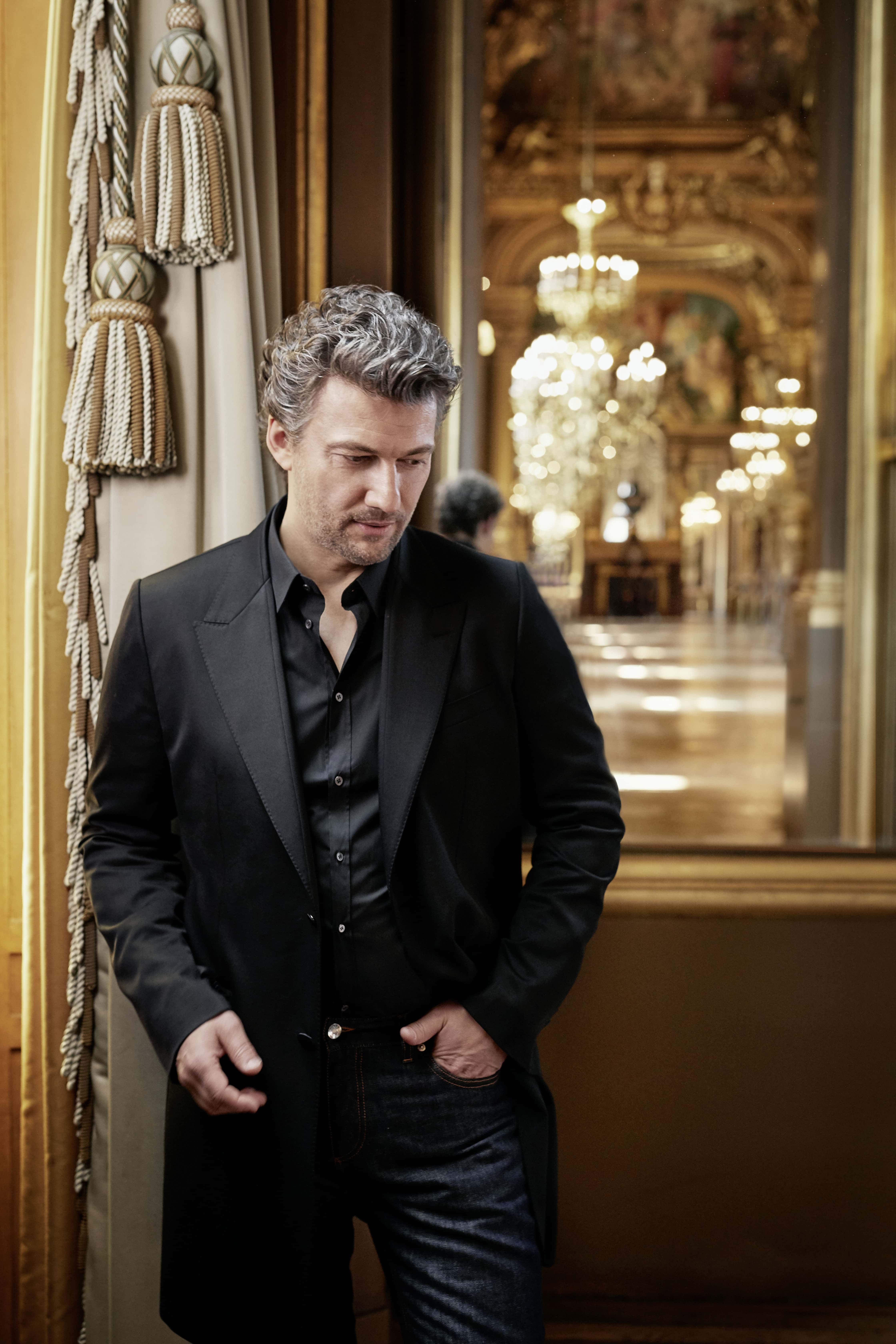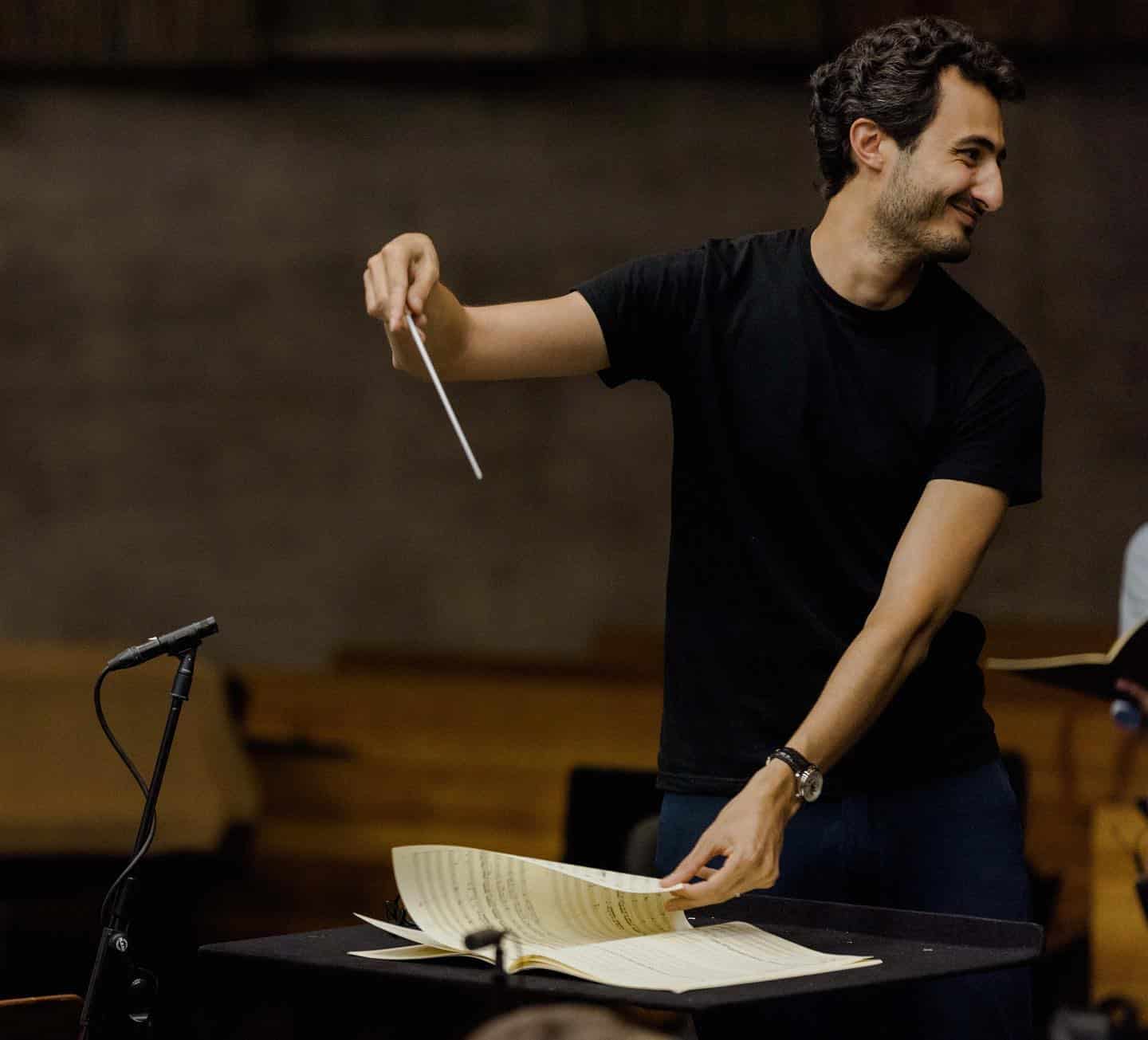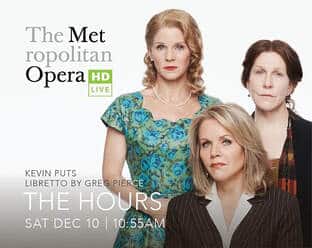Jonas Kaufmann speaks out on an artist’s duty in war
NewsThe tenor has spoken:
Should art be politically neutral? Can it be? Many artists throughout history have had to ask themselves this central question. While Benjamin Britten, in his American exile, wrote about an autistic outsider in a small fishing village in England and Richard Strauss pondered the complex relationship between music, words and stage direction, Viktor Ullman wrote his last work in Theresienstadt, Der Kaiser von Atlantis, which can be described as extremely political. It borders on a miracle that this work has been preserved for posterity. Nevertheless, it has not found its way into the great opera houses, quite in contrast to Peter Grimes and Capriccio.
Does this mean that one must remain neutral in order to not risk one’s success? In other words, “Vissi d’arte”? No, certainly not!
As an artist, one should be aware of where the respective strength of one’s ability lies. And Ullmann certainly was thinking less of posterity and more about the fellow prisoners who, with his help, were supposed to be amused by the caricatured Nazi greats in this unimaginably threatening atmosphere. So the question that arises is not one of neutrality at any price, but whether art itself must serve as a vehicle for every expression of opinion. I think: no.
As human beings, however, everyone must be able to express a private opinion – here “Vissi d’arte” has become obsolete.
Last autumn, I was appointed UN Ambassador, a really great honour of which I hope I can prove worthy. The idea of One Humanity of the The United Nations Alliance of Civilizations is visionary and yet only logical – at the same time human and utopian:
There is only this one earth on which we all must and may live. So what sense does it make to fight each other when no one can run away from our common destiny. The goal is for humanity to accept and understand that life on this planet only has a future if we all join hands and decide together on this future.
We have clearly moved away from this goal due to the military conflict in Ukraine. Therefore, as ambassador, I never tire of explaining that no conflict, of any kind, can only be resolved by force!
At certain points in history, peace negotiations were preceded by a joint concert. Perhaps this is the contribution that we as musicians can make: to build a bridge through art, to renew the awareness of common culture and interests and thus to strengthen the will for a peaceful settlement of this conflict. Let us hope so.






What an unintelligible text. “So the question that arises is not one of neutrality at any price, but whether art itself must serve as a vehicle for every expression of opinion. I think: no.
As human beings, however, everyone must be able to express a private opinion – here “Vissi d’arte” has become obsolete.” Can anyone explain what he means?
Better yet, I wonder is Kaufmann understands what it means?
I guess the original text , written in German, makes more sense. Someone from his staff used Google Translator to translate it into English and worked hard to make the final product visionary, yet only illogical.
There are antinomies that are sticking out and seem to be giving Jonas Kaufmann a hard time: private vs. public, art vs. life, neutrality vs. political engagement, mind vs.heart, logic vs.vision, courage vs.fear, democracy vs.tyranny, freedom of choice vs.necessity.etc His text is full of contradictions , it almost falls apart under their pressure – the word that keeps everything together nevertheless is ONE – written in capitals like a mantra, a magic token for everybody to cling to in times of chaos.
The artist s duty in war is the same as every person s , maybe more intensely so: to keep being an individual and to keep treating his fellow human beings as individuals. Never forgetting the human factor in a time of collectivism and dehumanization.
Bravo!
Weak. Just weak. “Military conflict in Ukraine?” No, it’s a war crime perpetrated by Putin and Russia bombarding citizens and cities.
Exactly. Good for him that he is not Russian, otherwise he would be cancelled.
People who understand something about clear tones have long cancelled him from their list. And now we have learned that he can’t express a clear thought either.
Senator Hiram Johnson 1918:The first casuality in war is Truth.
And ask yourselves: Cui bono?
Well chosen words, if perhaps a little bit too gimmicky… using “Vissi d’arte” twice, if only the tenor would actually sing it…
I think Kissin’s, Garanca’s, Gheorghiu’s and Beczala’s statements were the strongest
Very nice words Jonas. I wish it were true. Sadly people like Putin – like Hitler before him – only understand force.
He is saying, stop the fighting and negotiate:
“The goal is for humanity to accept and understand that life on this planet only has a future if we all join hands and decide together on this future.”
“…I never tire of explaining that no conflict, of any kind, can only be resolved by force!”
“…to renew the awareness of common culture and interests and thus to strengthen the will for a peaceful settlement of this conflict.”
“He is saying, stop the fighting and negotiate:”
Just talk to the guy who wants to murder you!
Such great advice.
I hate people.
Hindemith’s “Mathias the Painter” deals with some of the same issues.
“to build a bridge through art”
Right now it’s better for Ukrainians to blow up bridges. Ýou know, because of the Russian tanks closing in and stuff.
What a waste of 424 words.
In your estimation, how many people should die before the two sides sit down and find a resolution that will stop the killing?
The two sides? Really? Last time I looked the one invaded the other..
Hätte es damals mehr Leute wie Dich gegeben,
hättest Du das hier lesen können, ohne Google zu benutzen. 😉 q.e.d.
“Conflict in Ukraine”? How he avoids to use the term “invasion”! He shows a perfect example for “remaining neutral not to risk…”
Sounds ambivalent to me. I’m not impressed.
This guy takes himself way too seriously. Maybe intonation is a better goal than world peace, Jony.
Well said, Mr. Kaufmann!
It is a mystery to me that Kaiser von Atlantis is not better known. The Kaiser’s last aria is one of the most moving moments in opera, as much for its message as for its heartbreaking music.
With all respect to the artist…the idea he tried to convey, wasn’t worth the amount of effort and words he put in this statement.
In short: excessive intellectualization by my favorite tenor.
Nice.
Zarathustra he is not, albeit boisterous he is. What a word salad.
Zgadzam się z Panem, walka głosami, pięknem zawsze docierała do serc, duszy, szczególnie rosyjskiej, oby tak było teraz. Pamiętam Pana z występów z Wielkim, nieżyjącym już rosyjskim barytonem Dimą Chworostowskim, miękły serca. Posyłam serddczności.
https://www.newyorker.com/culture/cultural-comment/valery-gergiev-and-the-nightmare-of-music-under-putin?mc_cid=c18a666ba7&mc_eid=0fdfb3ae7e
Thanks for posting that. I read The New Yorker daily, and expected SD to link this, one of the most thoughtful commentaries yet on THIS aspect of the ongoing war, the one that is the ostensible interest of most who visit this site.
But I am not sure Alex Ross is on the approved list.
Such a diplomatic talent!
To speak and say nothing.
I read it three times to try and understand what he is saying but I only ramained with the joined concert.
So it means he wants to sing with Netrebko?
I’m a Kaufmann fan. But this is very disappointing.
Just a pretext to tell us he is UN Ambassador for whatever. This long and convoluted prose is like his singing – unfocused, mumbled, and it doesn’t arrive anywhere.
I see it isn’t only his vocal tone that has become poorly focused.
Kaufmann’s comment is as unintelligible as his Christmas album. But not as funny.
According to his logic, rape is sexual conflict between two indiviuals. Wow.
According to his logic, we can’t call rape rape but ‘sexual conflict’. Just wow.